
Settling in on the streets: Six months on, Division of Community Care finding niche in Northampton
NORTHAMPTON — In September, the city launched an experiment to try to create an alternative to police responses to address issues of mental health, homelessness and social inequities in the city.The Division of Community Care, which opened its doors...

Democracy’s defense marches on: Constitutional lawyer, activist daughter highlight annual Law Day event
NORTHAMPTON — Raised into activism and grassroots organizing, Marisol Pierce Bonifaz cites two key events that, for her, served as calls to action: U.S. Sen. Dianne Feinstein’s dismissive response to youth activists pushing for the Green New Deal, and...
Most Read
 A Waterfront revival: Two years after buying closed tavern, Holyoke couple set to open new event venue
A Waterfront revival: Two years after buying closed tavern, Holyoke couple set to open new event venue
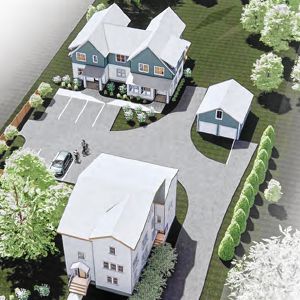 3-unit, 10-bed house in backyard called too much for Amherst historic district
3-unit, 10-bed house in backyard called too much for Amherst historic district
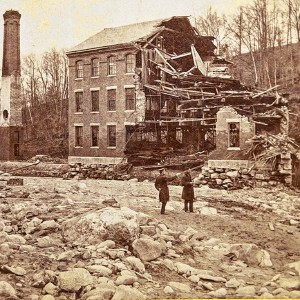 The long shadow of the Mill River flood: Multiple events on tap in May to mark 150th anniversary of the 1874 disaster
The long shadow of the Mill River flood: Multiple events on tap in May to mark 150th anniversary of the 1874 disaster
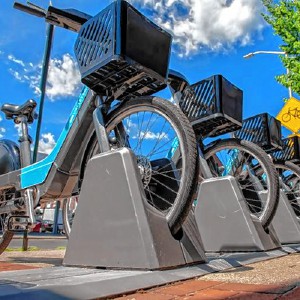 ValleyBike to roll again by end of May in eight communities throughout Valley
ValleyBike to roll again by end of May in eight communities throughout Valley
 Amherst College store opens downtown in former Hastings space
Amherst College store opens downtown in former Hastings space
 Area property deed transfers, May 2
Area property deed transfers, May 2
Editors Picks
 A Look Back, May 4
A Look Back, May 4
 Easthampton author Emily Nagoski has done the research: It’s OK to love your body
Easthampton author Emily Nagoski has done the research: It’s OK to love your body
 Earth Matters: Honoring a local hero: After 40 years, Hitchcock Center bids farewell to educator and creative leader, Colleen Kelley
Earth Matters: Honoring a local hero: After 40 years, Hitchcock Center bids farewell to educator and creative leader, Colleen Kelley
 The Beat Goes On: A trombone celebration in Holyoke, Lord Russ shifts gears, and the Hampshire Young People’s Chorus turns 25
The Beat Goes On: A trombone celebration in Holyoke, Lord Russ shifts gears, and the Hampshire Young People’s Chorus turns 25
Sports

High schools: Ian McDonald, Belchertown baseball edge Amherst 3-1
Tied up 1-1 with Amherst heading into the bottom of the fifth inning, the Belchertown baseball team grabbed two key runs to jump ahead by two – a lead they would keep the rest of the way.Behind two hits – their only two of the afternoon – and an RBI...
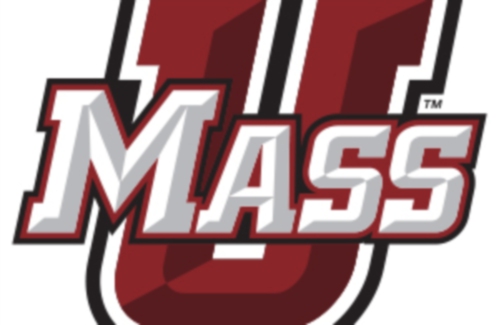 UMass lacrosse: Top-seeded Minutewomen hold off St. Joseph’s, punch A-10 title-game ticket
UMass lacrosse: Top-seeded Minutewomen hold off St. Joseph’s, punch A-10 title-game ticket
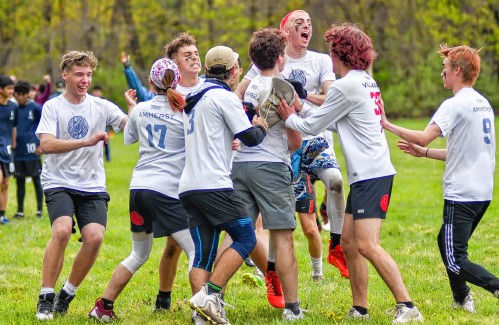 Ultimate: Amherst Invitational returns to UMass this weekend
Ultimate: Amherst Invitational returns to UMass this weekend
 Softball: Hopkins Academy making strides despite 8-3 loss to Franklin Tech (PHOTOS)
Softball: Hopkins Academy making strides despite 8-3 loss to Franklin Tech (PHOTOS)
 2024 Gazette Wrestler of the Year: Adin Clifford, Hampshire
2024 Gazette Wrestler of the Year: Adin Clifford, Hampshire
Opinion

My Turn: Gaza and lies
Say, “I don’t believe the numbers.” Insist “It’s complicated.”Say, “There is no alternative. Hamas has called for the destruction of the state of Israel and thus, Hamas must be destroyed.” Disregard the Israeli leaders who have called for the...
 Guest columnist Mariel E. Addis: Pride and prejudice
Guest columnist Mariel E. Addis: Pride and prejudice
 Guest columnist Gene Stamell: We know what we know
Guest columnist Gene Stamell: We know what we know
 Jennifer Dieringer: Budget must serve whole city
Jennifer Dieringer: Budget must serve whole city
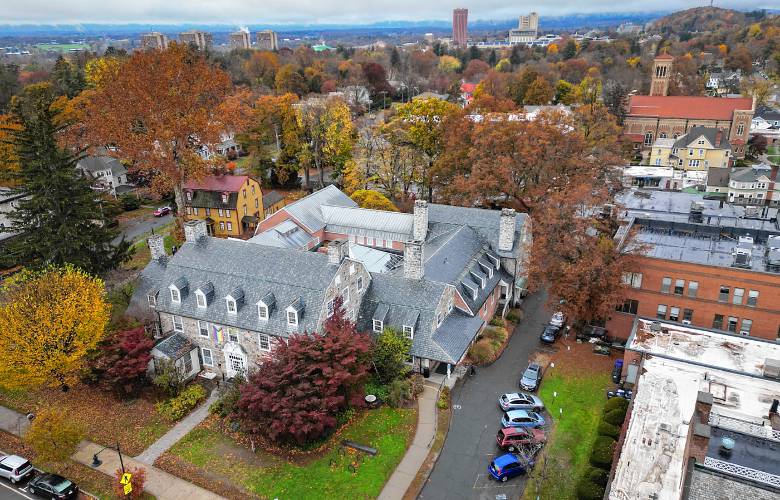 Ken Rosenthal: Time to change direction on Jones Library
Ken Rosenthal: Time to change direction on Jones Library

Business

Area property deed transfers, May 2
AMHERST Faheem Ibrahim Lt and Faheem Ibrahim to Nan Zhao and Zhihong Ni, 16 Arbor Way, $738,000 Richard B. Spurgin to Yg Pleasant LLC, East Pleasant Street, Lot 1, $218,000 Richard B. Spurgin to Yg Pleasant LLC, East Pleasant Street, Lot 2,...
Arts & Life

Valley Bounty: Delivering local food onto students’ plates: Marty’s Local connects farms to businesses
Nick Martinelli, CEO of Marty’s Local, began his career with a stint at the Farm School in Athol, hoping to learn how he might participate in the local agricultural economy. While conducting market research in 2015, he recognized there was a lot of...
Obituaries
 Eli Knapp Abrams
Eli Knapp Abrams
Florence, MA - Eli Knapp Abrams, of Florence Massachusetts, passed away suddenly on Monday, April 22nd, 2024 in Goshen, MA. Eli was born in Beverly, MA on March 19th, 2003. He is the cherished son of Jennifer and Maury Abrams, and belov... remainder of obit for Eli Knapp Abrams
 Henry Canby
Henry Canby
Leeds, MA - Henry Canby, 74, died unexpectedly on November 16, 2023, four months after being diagnosed with stage IV lung cancer. He had never smoked. He had continued running, playing soccer, and performing in his street band until onl... remainder of obit for Henry Canby
 Christopher A. Smith
Christopher A. Smith
Holyoke, MA - Christopher Alan Smith, 63, of Holyoke, passed away Dec. 26, 2023 peacefully at home with his wife near his side. Born in Palmer, February 3,1960 the son of the late Ronald and Marguerite (Marinello) Smith. He was a gradua... remainder of obit for Christopher A. Smith
 Lorna Areda Kepes
Lorna Areda Kepes
Pelham, MA - Lorna Areda (Hinton) Kepes, 78, of Pelham, passed away peacefully in her home on Tuesday April 30, 2024, surrounded by her loving family. She was born in Manchester, England on November 18, 1945, to the late George and Vict... remainder of obit for Lorna Areda Kepes

 State legislative panel spurns ballot measures
State legislative panel spurns ballot measures
 Holyoke Police Chief Pratt retiring: ‘It’s time to go’
Holyoke Police Chief Pratt retiring: ‘It’s time to go’
 Valley writers shine in initial round of Mass Book Award competition: 12 area authors and author/illustrators long-listed for 2024 awards
Valley writers shine in initial round of Mass Book Award competition: 12 area authors and author/illustrators long-listed for 2024 awards
 Hadley Town Meeting OKs battery storage bylaw, honor Chunglo for service
Hadley Town Meeting OKs battery storage bylaw, honor Chunglo for service
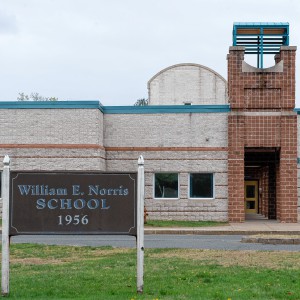 Southampton Town Meeting on Tuesday to weigh land buy for safety complex
Southampton Town Meeting on Tuesday to weigh land buy for safety complex
 Select board race between Gilmore, Shores Ness tops Deerfield ballot on Monday
Select board race between Gilmore, Shores Ness tops Deerfield ballot on Monday
 Around Amherst: Primary schools piloting foundational reading program
Around Amherst: Primary schools piloting foundational reading program
 1989 homicide victim found in Warwick ID’d through genetic testing, but some mysteries remain
1989 homicide victim found in Warwick ID’d through genetic testing, but some mysteries remain
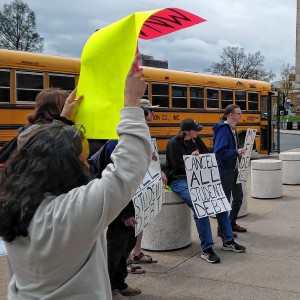 Debt-burdened students, grads rally for relief
Debt-burdened students, grads rally for relief
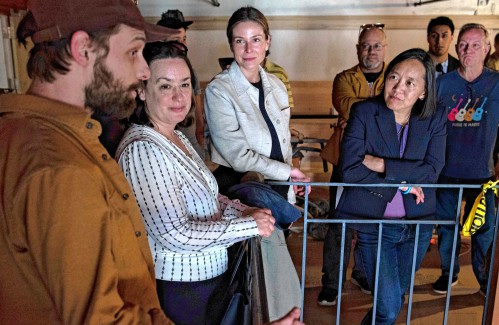 Music key to Northampton’s downtown revival: State’s top economic development leader tours city
Music key to Northampton’s downtown revival: State’s top economic development leader tours city  Locking up carbon for good: Easthampton inventor’s CO2 removal system turns biomass into biochar
Locking up carbon for good: Easthampton inventor’s CO2 removal system turns biomass into biochar Advancing water treatment: UMass startup Elateq Inc. wins state grant to deploy new technology
Advancing water treatment: UMass startup Elateq Inc. wins state grant to deploy new technology New Realtor Association CEO looks to work collaboratively to maximize housing options
New Realtor Association CEO looks to work collaboratively to maximize housing options Let’s Talk Relationships: Breaking up is hard to do: These tools can help it feel easier
Let’s Talk Relationships: Breaking up is hard to do: These tools can help it feel easier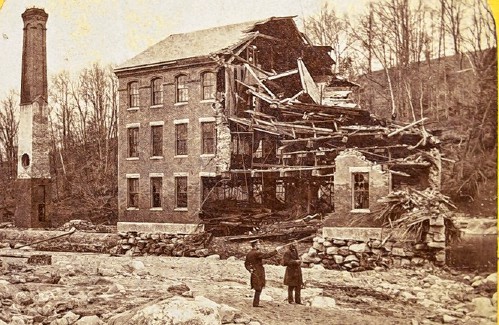 The long shadow of the Mill River flood: Multiple events on tap in May to mark 150th anniversary of the 1874 disaster
The long shadow of the Mill River flood: Multiple events on tap in May to mark 150th anniversary of the 1874 disaster 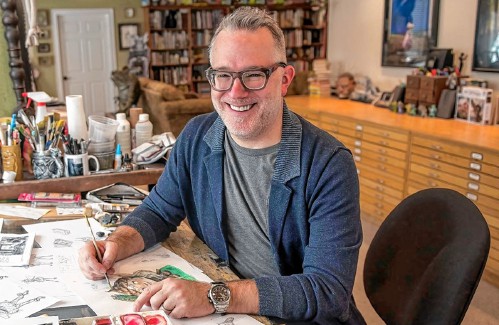 Fantasy favorite revisited: Amherst authors’ popular ‘Spiderwick Chronicles’ gets a new streaming adaptation
Fantasy favorite revisited: Amherst authors’ popular ‘Spiderwick Chronicles’ gets a new streaming adaptation Speaking of Nature: Bird of my dreams, it’s you: Spotting a White-tailed Tropicbird on our cruise in Bermuda
Speaking of Nature: Bird of my dreams, it’s you: Spotting a White-tailed Tropicbird on our cruise in Bermuda
